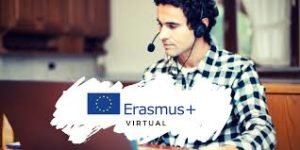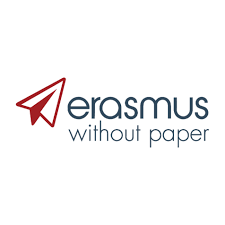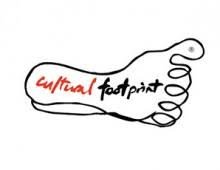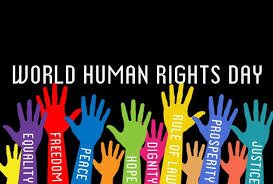Weekly Roundup
 The Impact of Artificial Intelligence on Learning, Teaching and Education
The Impact of Artificial Intelligence on Learning, Teaching and Education
At the November 2017 Gothenburg Summit, the Commission presented the Communication ‘Strengthening European Identity through Education and Culture’, that set out a vision for a European Education Area and announced a dedicated Digital Education Action Plan2, which aims to foster digital skills and competences for all citizens. Artificial Intelligence is currently high on the political and research agendas around the world. New technologies always create both hype and scepticism around its implications for society and the economy. Although acknowledging that the foundations for AI have been already round for several decades, recent technological breakthroughs are accelerating what AI could do. This report published by the European Publication Office, is a contribution to the Digital Education Action Plans which entails policy research and guidance on the impact and potential of digital technologies in education.
Read the full report here.
 Impact of Volunteering in Adult Education
Impact of Volunteering in Adult Education
Volunteering plays a vital role in Adult Education, from the participants themselves to educators. Volunteers can create an impact on educators, participants and even the wider community. It also acts as another method of adult learning, giving volunteers skills and experience through the volunteering work they do. Erasmus+ funding can help organisations offer these opportunities to volunteers in the UK. The funding has allowed volunteers to develop their skills, whilst sharing knowledge with their teams.
More information can be found here.
 The Impact of Erasmus+ Virtual Exchange
The Impact of Erasmus+ Virtual Exchange
The Erasmus+ Virtual Exchange expands the reach of the Erasmus+ programme through virtual exchanges through the following activities: Online facilitated dialogue, transnational EVE projects, advocacy training and interactive open online courses. I provided an accessible, innovative way for youth in Europe and the Southern Mediterranean to engage in intercultural experiences online. After monitoring the impact of the Virtual Exchange some general trends emerged. overall the experience of Virtual Exchange has been overwhelmingly positive for participants who completed the activities.
Read more details about the impact of Virtual Exchange here.
 The Erasmus Without Paper Initiative
The Erasmus Without Paper Initiative
On the 12th of December the new Erasmus Without Paper initiative has launched. The project is co-funded by the European Commission and is bringing Erasmus administration into the 21st century by going digital. The project is about replacing a paper-based workflow by a digital one. Administrative practices in Erasmus are still paper based. It will help to tackle administrative workload for both the students and staff as student exchanges need to process a lot of documents and procedures that lead to a huge workload. Furthermore, it will create free public infrastructure by facilitating a digital administrative workflow. Finally, the project aims to streamline technical solutions for student mobility.
To keep up with the latest updates on this initiative click here.
 Cultural footprints: exploring the past, present and future
Cultural footprints: exploring the past, present and future
Culture does not always take a physical form, in order to protect intangible forms of culture UESCO defined them in the 2003 Convention for the Safeguarding of Intangible Cultural Heritage. Oral traditions, customs, rituals, festivals, dance theatre fall under this definition. How can school education involve the intangible heritage? National identity is always tangible in society, by celebrating for example, public holidays the school honours a country’s cultural heritage. Other ways of including these intangible forms of culture in education is to teach the country’s history and education about religious diversity.
Read more here.
 Day of the Human Rights
Day of the Human Rights
On the 10th of December Human Rights Day is celebrated. This year the 70th birthday of the Universal Declaration of Human Rights was celebrated. Human dignity, freedom, democracy, equality, the rule of law and respect for human rights are embedded in the treaties of the European Union. The EU Charter of Fundamental Rights is a clear and strong statement of EU citizens’ rights. Archbishop Desmond Tutu, a human rights activist said: “all of our humanity is dependent upon recognizing the humanity in others”, because all we finally have is each other.
 Adult Education and Lifelong Learning in South-eastern Europe
Adult Education and Lifelong Learning in South-eastern Europe
Adult education and lifelong learning in south-eastern Europe, a critical view of policy and practice is a part of an international book series, which attempts to do justice to adult education as an expanding field. It is intended to be internationally inclusive and attract writers and readers from all over the world. It attempts to cover many of the areas that feature prominently in this field. The series underlines the global dimensions of adult education, covering a wide range of perspectives.
You can access the book series here.
 The Use of Volunteers in Migrant Language Education
The Use of Volunteers in Migrant Language Education
In a globalised world, migration is a fact of life. Migrants are crucial for the future of many European countries, in order to integrate and meet gaps in the labour market migrants should be supported in participating in the labour markets and civil society. It is crucial for migrants to learn the host country’s language in order to be able to participate economically and socially. Without mastering the host language, migrants face great barriers to integration, diminishing their economic potential and creating additional costs for public services such as social and health care, education and crime. To meet this demand for language education there is a need for a greater number of educators, however restrictions on national education budgets means that it could be necessary to consider volunteers to fill this gap.
Read more here.
Prepared by Dimyana Salib

